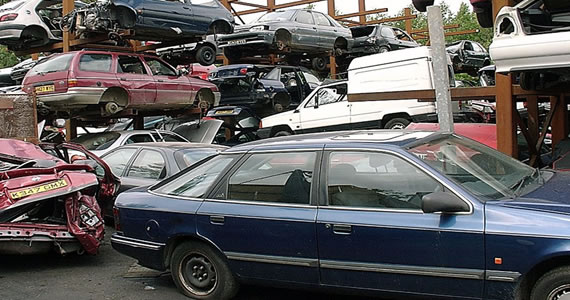So, you’ve finally decided to replace your old gas guzzler with a hybrid, but now you need to choose the right scrappage program to take your clunker off your hands. Here are five factors to consider when choosing a junk car collection program.
Price
If you’re hoping to sell your junk car for cash, you’ll want to make sure you’re getting the best deal possible. Some programs pay you a set cash amount, regardless of your car’s condition. However, many programs base your cash payment on the make, model, year, and condition of your car. Many of these junk car programs provide an estimate tool on their website so you can make sure you’re getting the best offer for your vehicle.
Reputation
Before you contact a company to come pick your clunker up, do your research. Check out their website. Read online reviews and testimonials. Ask friends, neighbors, and family member who have exchanged a car through a voluntary scrappage program about their experience and recommendations. Working with a reputable, reliable company ensures that you will receive the agreed-upon compensation in the timeframe the program gives you.
Convenience
Some scrappage programs require that you bring your car to a junk yard, while others will send a tow truck right to your home. If your junk car can no longer be driven, look for a scrappage program with pickup options that work with your schedule. If you go with a pickup program, make sure they serve your specific area. Many scrappage companies have restrictions on the amount of distance they will go to collect your car. For most programs, you’ll be paid either when your car is picked up or when you drop it off at a scrap yard.
Environmental Impact
Junk car programs were created to get energy-inefficient vehicles off the roads to reduce air pollution, but some programs are eco-friendly in name only. Environmentally-conscious vehicle scrappage programs repair cars that are not considered a “total loss” vehicle and recycle parts from the cars that they scrap. Many scrappage companies recycle tires, vehicle fluids, batteries, and the scrap metal produced from demolishing the vehicle.
Don’t hesitate to ask about the company’s environmental impact. If the response is vague (or if there’s no explanation of the programs recycling process on their website), the company may be disposing of the cars they collect irresponsibly. Look for a program that doesn’t treat their environmental impact lightly. Improper disposal of car materials can create safety hazards and overcrowded landfills. The chemicals in car fluids can pollute groundwater and hurt wildlife, while scrap tires house disease-carrying insects and rodents and may cause dangerous, hard to control tire fires.
Requirements
Some programs have a set of requirements that your vehicle must meet in order for it to be exchanged. These requirements may include:
- Record of a previously failed SMOG test
- The car has been insured for the last six months
- The car can still be driven
- The car was made more recently than 1987
Requirements may vary from company to company or by state. If your car doesn’t meet the requirements of one company, keep looking. There are many programs that accept vehicles regardless of condition.
Considering these factors when choosing a car scrappage program can help you get the best deal for your junk car.














